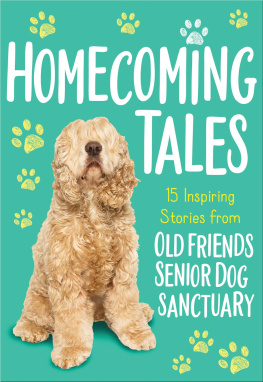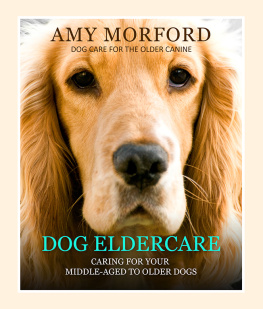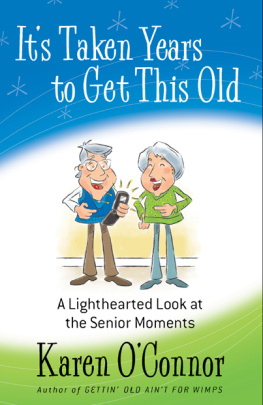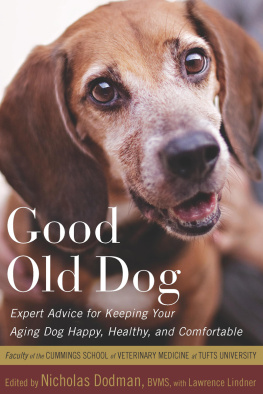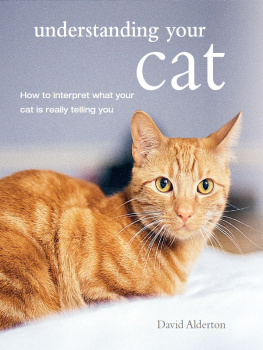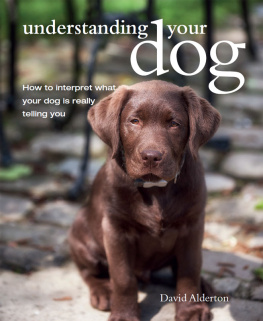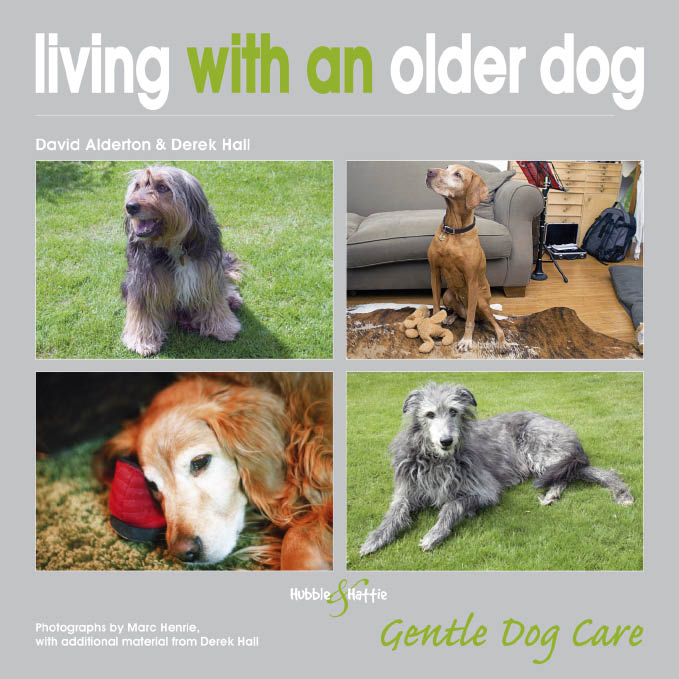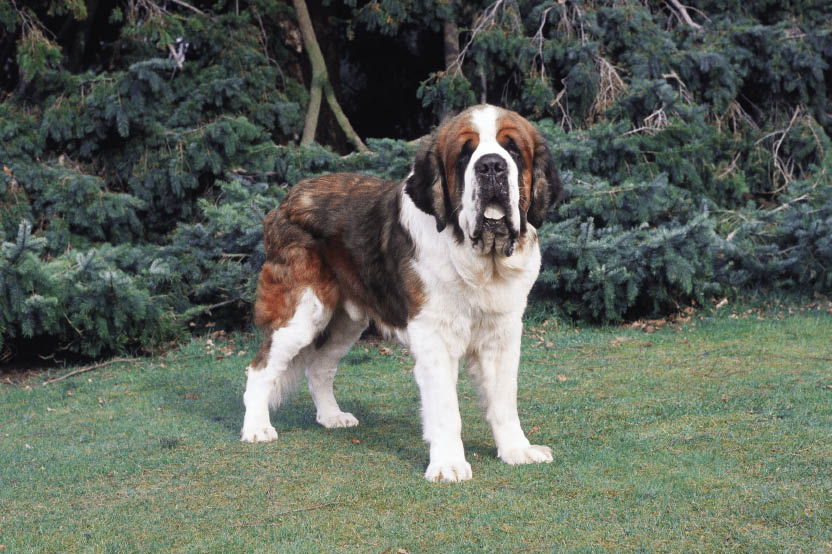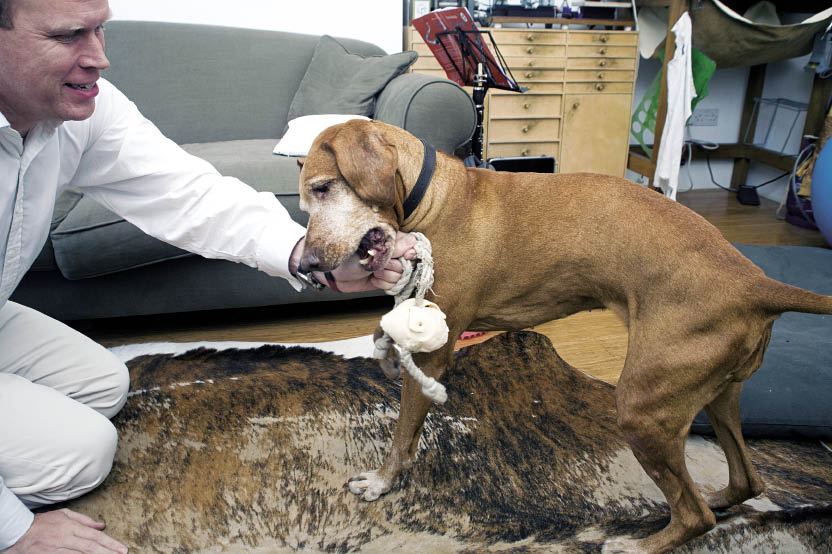living with an older dog
Gentle Dog Care
David Alderton & Derek Hall
Photographs by Marc Henrie,
with additional material from Derek Hall
The Hubble & Hattie imprint so-called in memory of two, much-loved West Highland Terriers is the home of a range of books that cover all things animal, all produced to the same high quality of content and presentation as our motoring books, and offering the same great value for money.
www.hubbleandhattie.com
First published in paperback format in February 2011
First published in eBook format in January 2014
Veloce Publishing Limited, Veloce House, Parkway Farm Business Park, Middle Farm Way, Poundbury, Dorchester, Dorset, DT1 3AR, England. Fax 01305 250479 e-mail .
Print ISBN: 978-1-845843-35-9
eBook ISBN: 978-1-845845-93-3
David Alderton, Derek Hall & Veloce Publishing Ltd 2014. All rights reserved. With the exception of quoting brief passages for the purpose of review, no part of this publication may be recorded, reproduced or transmitted by any means, including photocopying, without the written permission of Veloce Publishing Ltd. Throughout this book logos, model names and designations, etc, have been used for the purposes of identification, illustration and decoration. Such names are the property of the trademark holder as this is not an official publication.
Readers with ideas for books about animals, or animal-related topics, are invited to write to the editorial director of Veloce Publishing at the above address. Typesetting, design and page make-up all by Veloce Publishing Ltd on Apple Mac. eBook code and design produced in-house by Veloce Publishing Ltd.
Contents
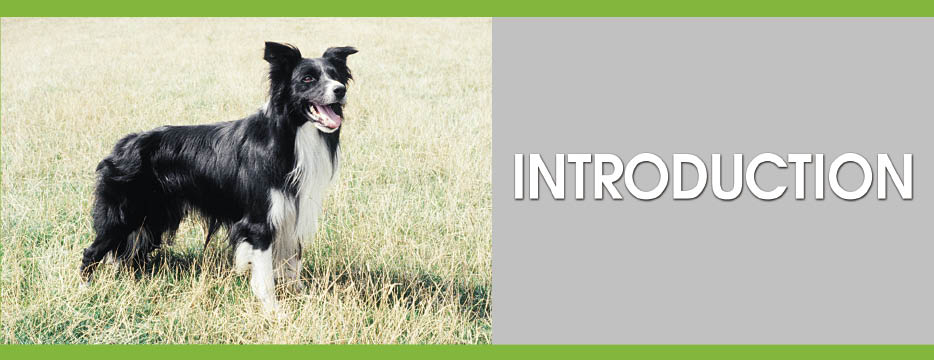
It can sometimes be quite difficult to define exactly what we mean by the term older dog. After all, a two-year-old dog is older than a one-year-old dog, but, in this case, both would be thought of as positively youthful in canine terms. We must also consider the fact that some kinds of dogs are much more long-lived than others, and therefore, the number of years at which elderly or senior status is recognised varies from breed to breed. In some large dog breeds, such as Great Danes, Irish Wolfhounds and St Bernards, senior status is reached at about five or six years old. By contrast, a six-year-old Chihuahua a breed that may live for sixteen years or longer is more or less still in his adolescence at this age. Overall, the longer a dog lives, the later he achieves senior status. Nevertheless, the average age by which we assume that a typical dog has reached senior status is around seven or eight years. Determining the age expectancy, and thus the likely time at which senior status is reached, is of course much harder where crossbred dogs are concerned. Their heritage is not only mixed, but sometimes not even known for certain although many experts put the average life expectancy of a typical crossbreed at about thirteen years.
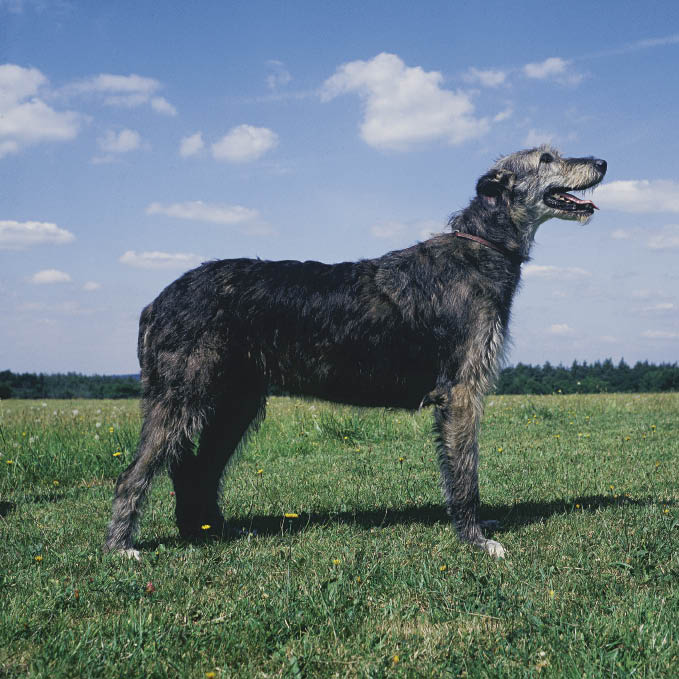
The huge, but graceful and endearing Irish Wolfhound does not, unfortunately, enjoy an especially long life. He is mature at about three years of age and may show signs of slowing down by about the age of five or six.
The St Bernard is another very big breed of dog with a shortish lifespan about ten years or so. He can be prone to skin problems, tumours and hip dysplasia.
Then there is our own human perception of canine age to consider. If we have owned a dog from the time it was a boisterous and mischievous little puppy, we often still consider him to be extremely youthful, even when he has reached quite an age. Provided he is still active, enjoys playing, looks trim and still does the endearing things that give each dog his individual character, nothing much will appear to have changed.Eventually, however, the signs of ageing will begin to manifest themselves, even in the fittest, leanest and most youthful-looking of dogs. There will be noticeable physical changes, such as a greying of the fur, especially around the head, and a hazy coating over the eyes, as well as certain behavioural changes, such as the propensity for your dog to want to sleep longer, run around less, and perhaps to drink more water.
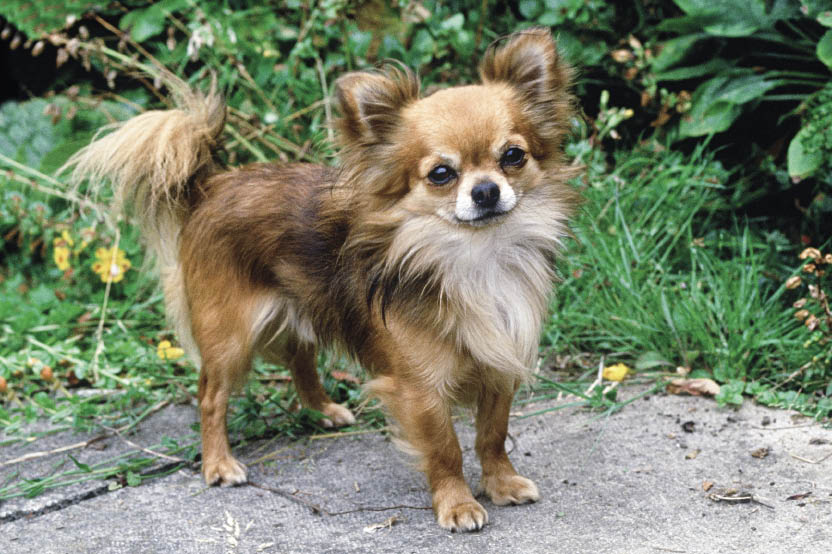
The little Chihuahua, like several small breeds of dog, can live for sixteen years or more. Chihuahuas are active dogs that will need regular daily exercise to keep them fit and healthy throughout their life.
As long as she is healthy, an older dog, such as this Viszla, will still enjoy playing a game with her owner, even when well advanced in years.
A new beginning
However, these are rarely signs that we need to worry about unduly. After all, if a dog lives until, say, thirteen or fourteen years of age or more, then when older dog status kicks in at around seven years or so, hes only about halfway through his lifespan! Instead, we should come to regard this canine coming of age as a cause for celebration and simply another phase in his life; we can think of our companion as a wise and trusted friend, instead of an unruly teenager, and look forward to our golden years together. If anything, the bond between dog and human becomes stronger at this time, giving us a chance to re-evaluate and appreciate the contribution that our dog brings to our lives. Your faithful friend will gradually make his own adjustments as he gets older, and we should be prepared to do the same. By understanding what is going on at the canine level, we can help to enhance his lifestyle, improve his health, and make him an even more valued member of the family. If, for example, our dog wants to play less often, we must respect his wish, rather than try to encourage him to play, simply because thats what he always used to do. Instead, make play time with your dog a shorter, quality experience for all concerned.
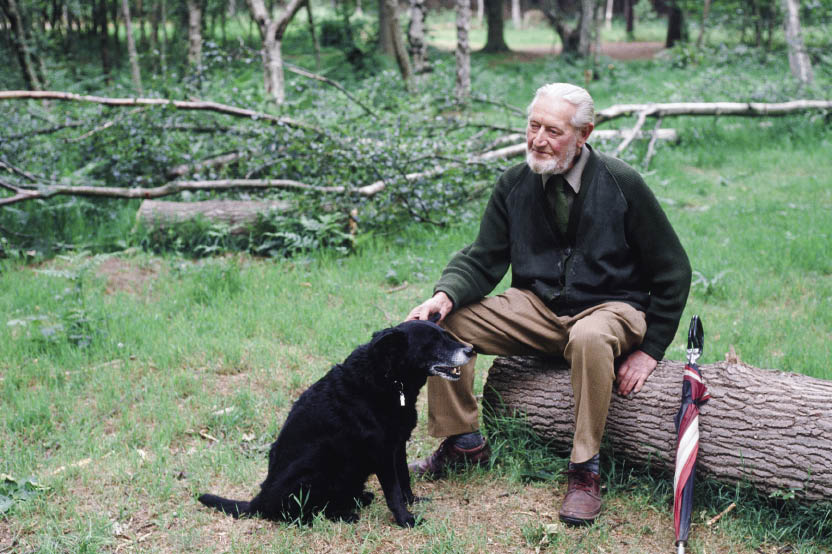
Growing old together. This senior dog and his owner have clearly formed a close bond of friendship and trust.
There is also an important role we can play in a dogs early years to help offset the effects of ageing. In this respect, dogs are somewhat like humans: a dog that has been given plenty of exercise both physical as well as mental and lots of interaction with humans and other animals, will often be slower to show the effects of the ageing process. His diet throughout his earlier years can also play an important part in determining how and when the signs of ageing begin to show. An overweight dog will be less likely to actively exercise, and this in turn will mean that he may begin to show his age much earlier, and may even succumb more quickly to some of the diseases to which older dogs are often prone.


